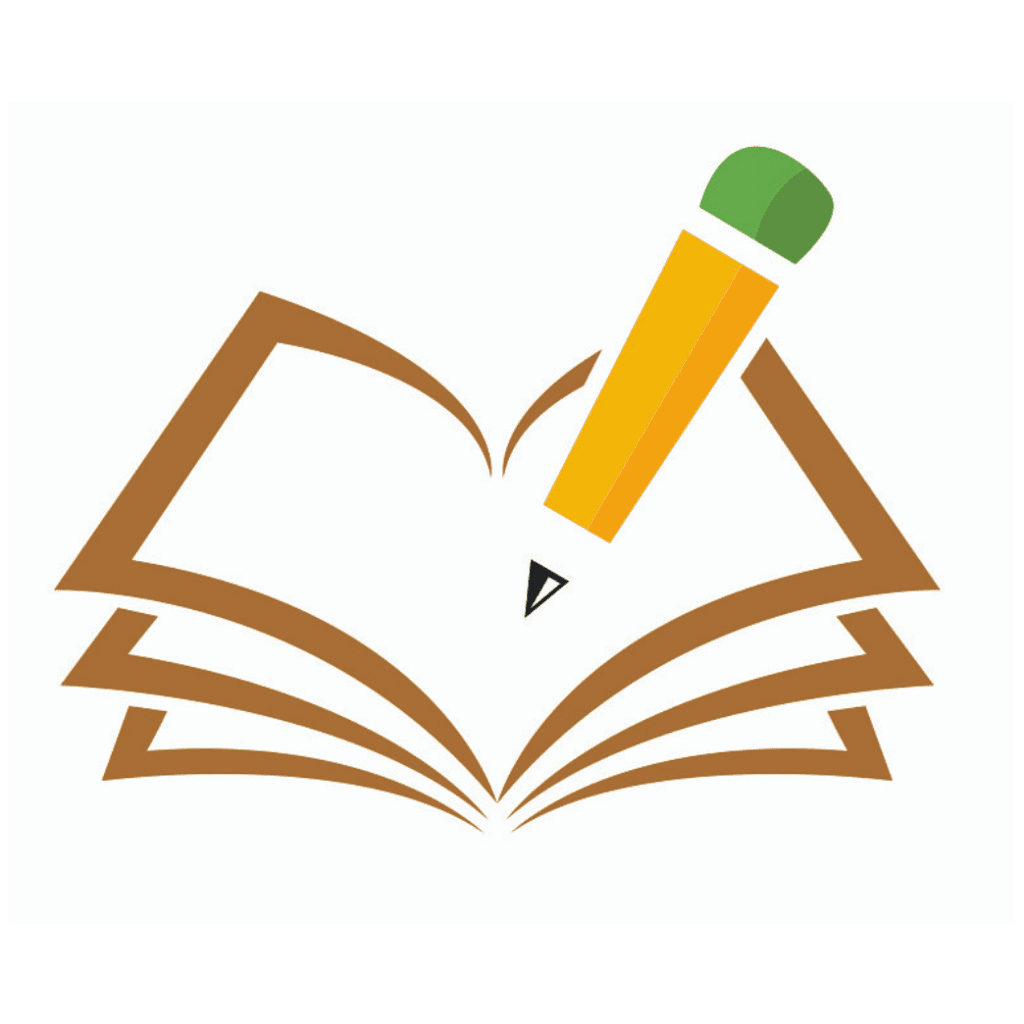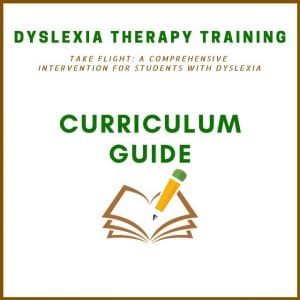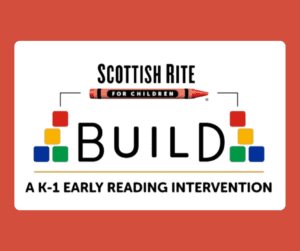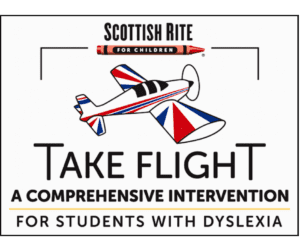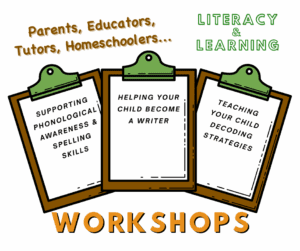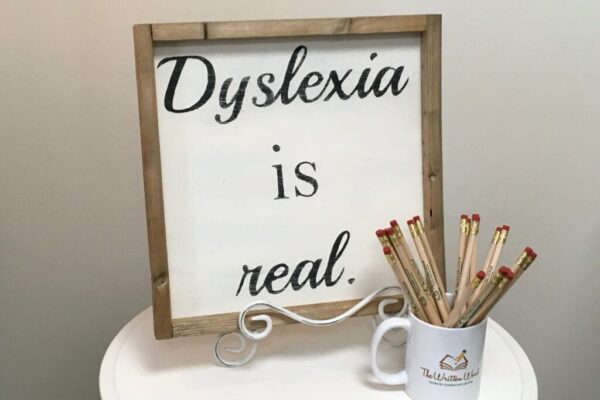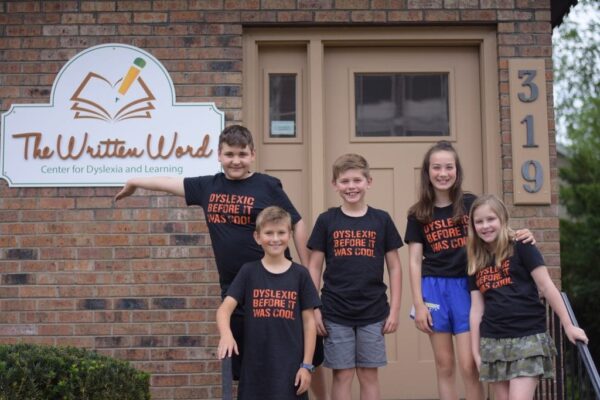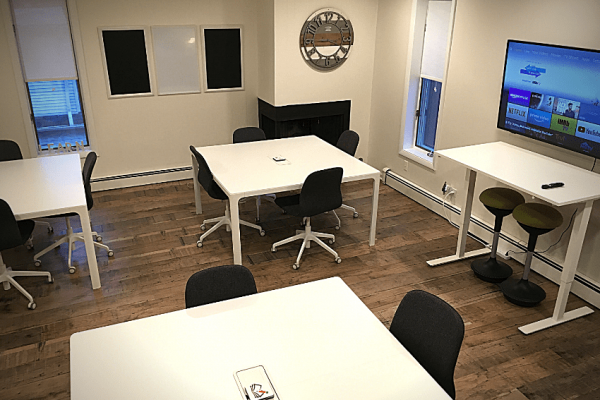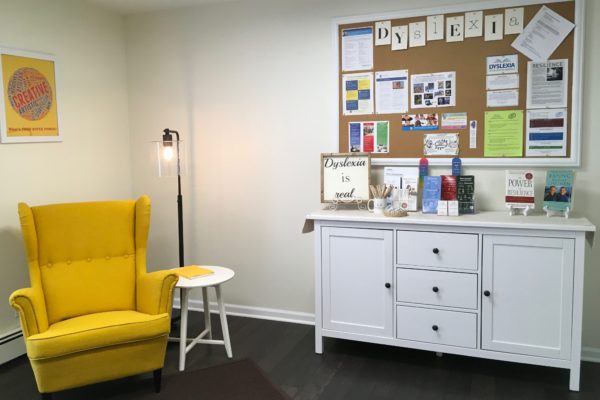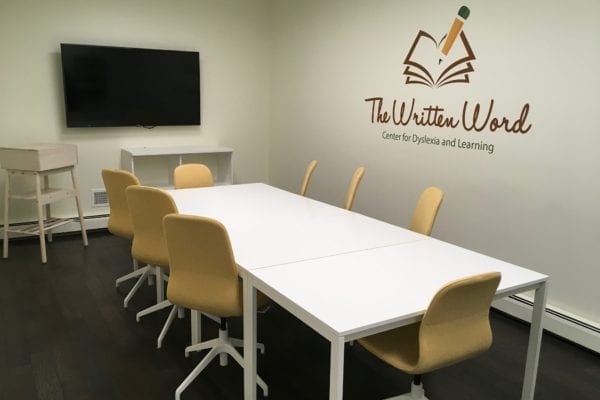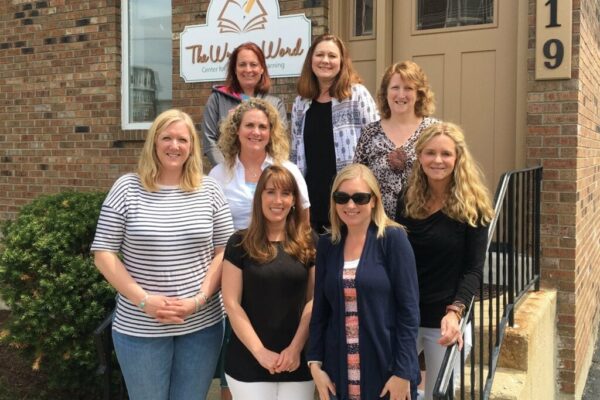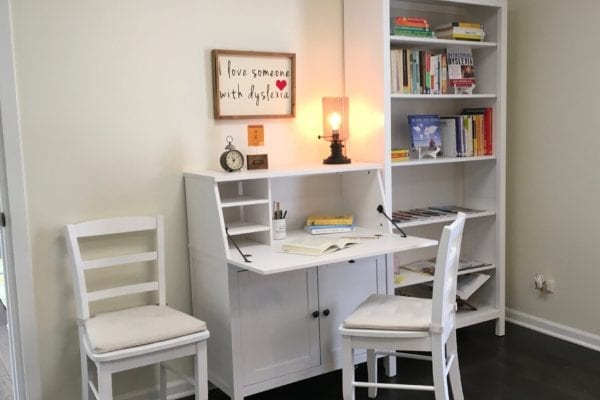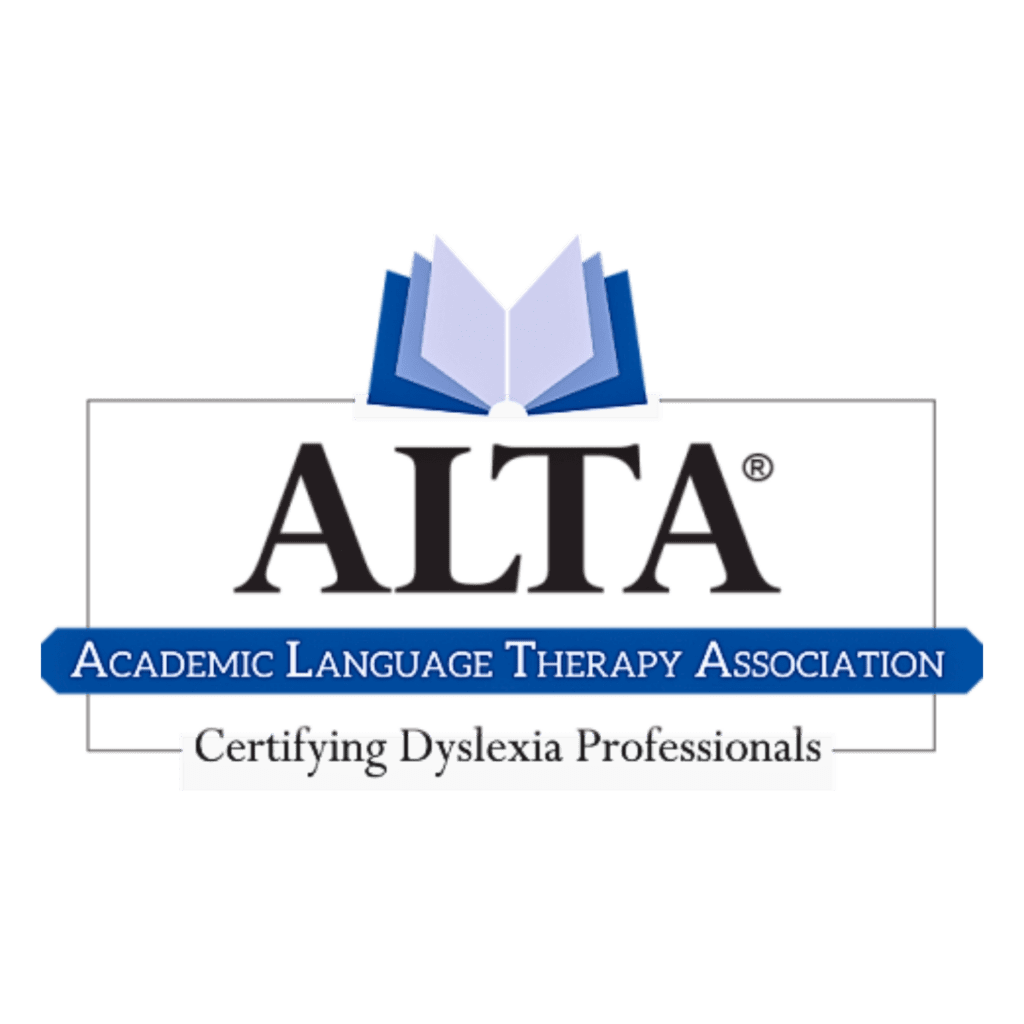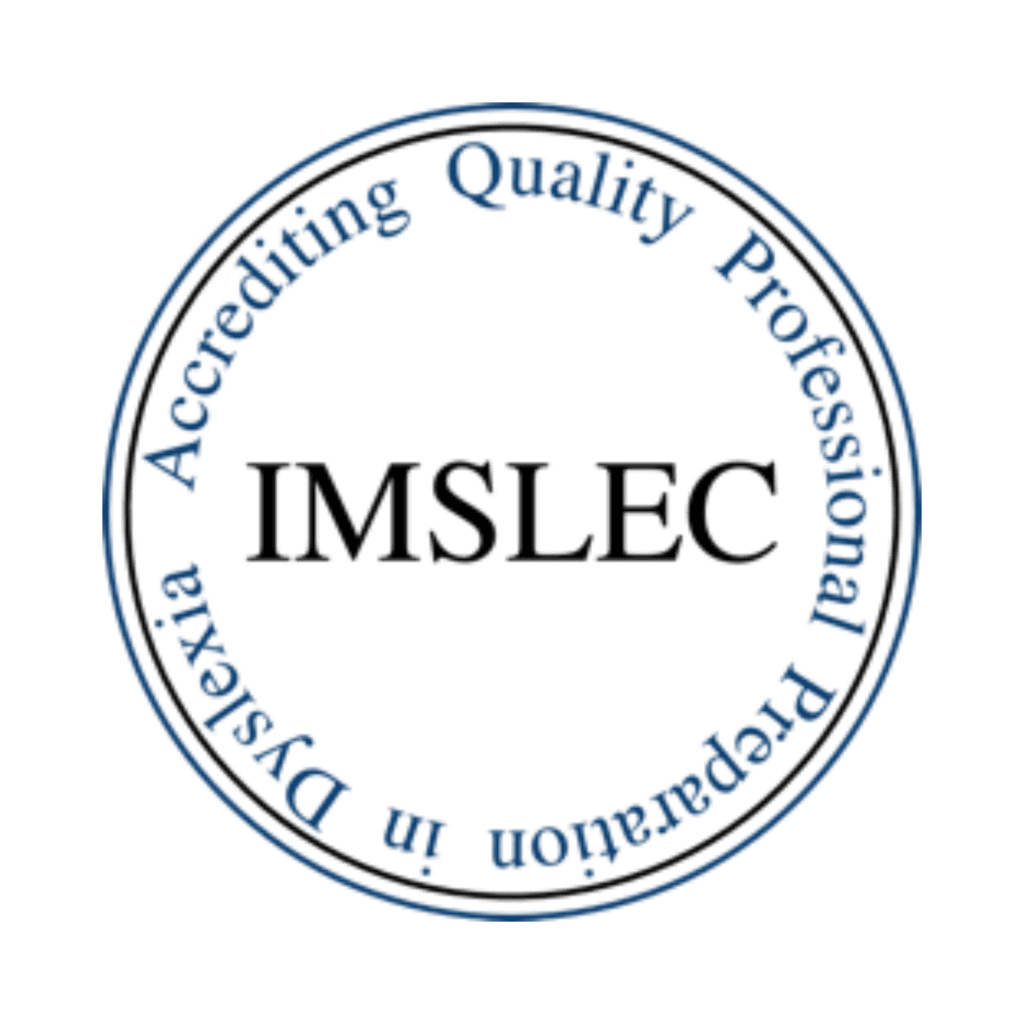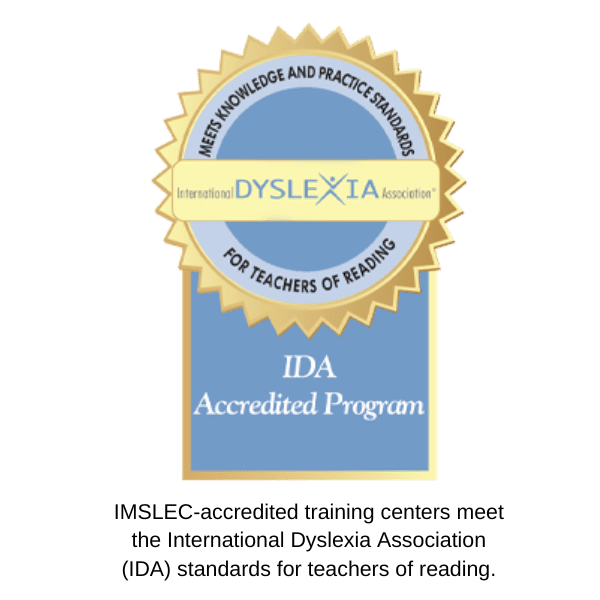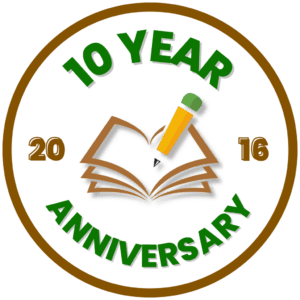
The Written Word is an IMSLEC-Accredited Center providing evidence-based training in structured literacy for teachers and interventions for students with dyslexia. We also provide hands-on literacy and learning workshops for parents designed to help them support their children.
TAKE FLIGHT DYSLEXIA THERAPY TRAINING FOR TEACHERS
Teacher trainees learn to implement an Orton-Gillingham-based multisensory dyslexia therapy program called Take Flight: A Comprehensive Intervention for Students with Dyslexia, Tier III. The Written Word Dyslexia Therapy Training (TWW-DTT) is an International Multisensory Structured Language Education Council (IMSLEC) accredited training program. The course content reflects IMSLEC’s standards as well as the Academic Language Therapy Association’s (ALTA) eight (8) standards of Knowledge and Skills in Multisensory Structured Language Education. Upon completion of all program training requirements, individuals can sit for the ALTA Competency Exam for Multisensory Structured Language Education. This is a comprehensive national registration examination administered by ALTA. Successful completion of all training requirements can lead to Certified Academic Language Therapist (CALT) certification.
BUILD: A K-1 Early Reading Intervention Training FOR TEACHERS
Build: A K-1 Early Reading Intervention, Tier II, program is used to meet the needs of K-1 students who have been identified as at risk for dyslexia. It was developed by the staff of the Luke Waites Center for Dyslexia and Learning Disorders at Scottish Rite for Children.
ACADEMIC LANGUAGE THERAPY FOR STUDENTS WITH DYSLEXIA
A Certified Academic Language Therapist (CALT) delivers Academic Language Therapy instruction. Tara uses Take Flight: A Comprehensive Intervention for Students with Dyslexia to remediate dyslexia. Take Flight is a Tier III intervention designed for individuals with dyslexia ages seven and older. For students younger than seven, BUILD: A K-1 Early Reading Intervention is the curriculum used for intervention.
Literacy and Learning Workshops For Parents, Educators, Tutors, And Homeschoolers
Join us for informative and interactive Literacy and Learning Workshops that are specifically designed to help parents support and enhance their child’s literacy development. These workshops will offer guidance and inspiration as you learn to implement strategies that align with current key findings for best instructional practices. These workshops will provide you with valuable insights and tools that will enable you to effectively support your child’s learning journey.
THEY SAY
THE CENTER
“You are braver than you believe, stronger than you seem, and smarter than you think.”
– Christopher Robin (A. A. Milne)
CREDENTIALS, ORGANIZATIONS, AND CERTIFICATIONS
ALTA
The Academic Language Therapy Association (ALTA) is a non-profit national professional organization for the purpose of establishing, maintaining, and promoting standards of education, practice, and professional conduct for Certified Academic Language Therapists. Academic Language Therapy is an educational, structured, comprehensive, phonetic, multisensory approach for the remediation of dyslexia and/or written language disorders.
AMS
The American Montessori Society (AMS) is the foremost advocate for quality Montessori education, an innovative, child-centered approach to learning. An Elementary I (EL) credential is awarded to successful graduates of an American Montessori Society (AMS) teacher education program. The Elementary I credential allows instruction for children ages 6-9.
IDA
The International Dyslexia Association (IDA) is an international organization that concerns itself with the complex issues of dyslexia. The IDA membership consists of a variety of professionals in partnership with dyslexics and their families and all others interested in The Association’s mission.
IMSLEC
The mission of the International Multisensory Structured Language Education Council is to accredit quality training courses for the professional preparation of multisensory structured language education specialists.
QI
A Qualified Instructor (QI) credential is earned through ALTA by completing the requirements necessary to teach professionals to become a CALT through an accredited International Multisensory Structured Language Education Council (IMSLEC) training center.
CALT
A Certificated Academic Language Therapist (CALT) is a professional credential to describe an individual who has the expertise to provide services to individuals who have difficulty acquiring the basic language skills necessary to read, write and spell. CALTs have a deep knowledge of the structure of the English language and the experience to apply these skills in creating an individualized instruction plan for the remediation of dyslexia and related learning disorders.
